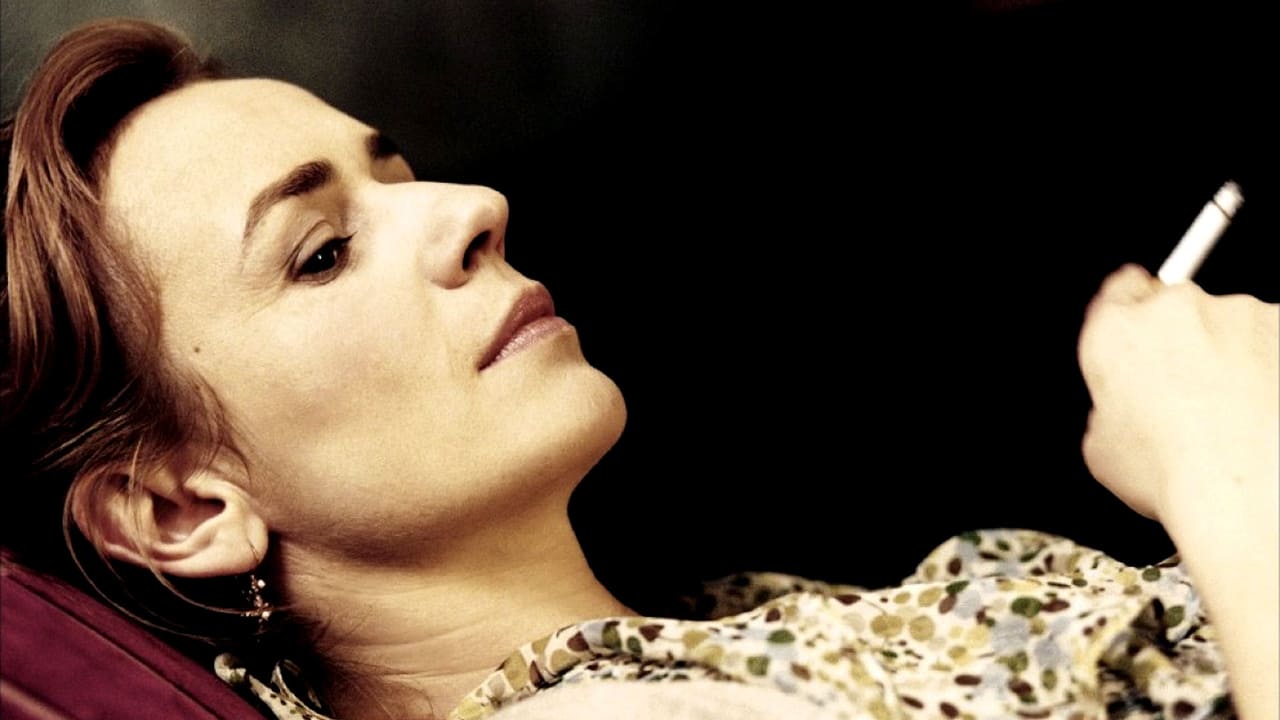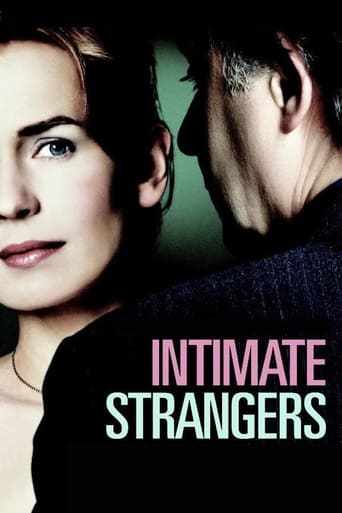Supelice
Dreadfully Boring
Joanna Mccarty
Amazing worth wacthing. So good. Biased but well made with many good points.
Neive Bellamy
Excellent and certainly provocative... If nothing else, the film is a real conversation starter.
Myron Clemons
A film of deceptively outspoken contemporary relevance, this is cinema at its most alert, alarming and alive.
jhsteel
The tax lawyer mistaken for a psychiatrist ended up healing his "patient" by just listening, not judging, and by being there for her. Having some knowledge of psychotherapy, this impressed me. The real psychiatrist was giving Faber advice about how he should "treat" the woman, but in the end Faber followed his own instincts. The two main characters were fascinated by each other and this was clear, but they didn't express their attachment in a conventional way. I found this movie compelling because it was difficult to anticipate what would happen and the characters seemed real. The impact of real loneliness and what it makes people do was well shown. I was also pleasantly surprised at how the lighting, the sets and the general mood lightened as the film went on, echoing the more optimistic outlook that Anna developed. It was encouraging to think that by sharing intimate problems, it is possible to work through them, even if the other person only listens and doesn't offer solutions.
lastliberal
A stranger walks into your life and you find yourself totally captivated. In the hands of Patrice Leconte this is something worth watching.It is the fourth film of his that I have seen. I watched it mainly for Sandrine Bonnaire, who captivates me as much as she captivated William (Fabrice Luchini).He is an accountant, and she walked into his office by mistake thinking he was a psychiatrist. Even after they admitted they both knew the truth, she kept coming and he kept waiting for her, even shuffling his real clients out the door.A fascinating exchange, full of surprises, and well worth watching again.
MagicStarfire
**WARNING THIS REVIEW CONTAINS SPOILERS** 4 stars out of 10.That is, this review would contain spoilers if the film had any plot, and if anything had ever happened in the film.This French film intriguingly teases us, but it never really comes to anything.It begins with an interesting premise, a somewhat attractive woman has an appointment with a psychiatrist, but she mistakenly goes to the office door of a tax attorney who is in the same building.Once there, she begins to tell him of her marital woes, and at first he doesn't realize the mistake she has made, since he frequently hears personal tales from his clients that are similar to hers.Eventually the truth comes out, but she continues to come and see him, and they continue to talk, again and again and again and again.Then finally, when we are at least halfway into the film, her husband, Marc, shows up at the attorney's office. This confrontation doesn't come to anything and neither does the one or two others that occur between the tax attorney and the husband.Apparently, a deeply troubled person can confide to a tax attorney and get just as much help as they would if they went to a qualified psychologist, at least if we are to judge from this film.Finally we learn that the somewhat prim and proper tax attorney is in love with Anna, but again it comes to nothing. He never tells her he is in love with her, and no intimacy or anything even remotely romantic or sexual ever occurs between the two of them.They break off their "therapy-type" sessions for awhile, but by the end of the film they have resumed them.
Dennis Littrell
(Note: Over 500 of my movie reviews are now available in my book "Cut to the Chaise Lounge or I Can't Believe I Swallowed the Remote!" Get it at Amazon.)This is the most nuanced of Patrice Leconte's films that I have seen. Everything is carefully constructed at a measured pace with just enough revelation as we go along, but no more, so that we can follow the plot's development easily. The film is cut as close as a barber's shave and is as neat as a pin.Anna (Sandrine Bonnaire), who is a bit of a tease, finds herself in what she thinks is a shrink's office. (There's a magazine on the desk whose title is partially obscured so that only the word "analyst" appears to her eyes, thereby confirming her expectations.) Behind the desk however is William Faber (Fabrice Luchini) who is a tax accountant and perhaps the last man in the building who could conceivable help Anna with her marital problem. He is after all something of recluse. He doesn't drive. He usually eats alone in his apartment, which apparently is the same place as his office, watching TV (in one scene it's Humphrey Bogart as Phillip Marlowe with French subtitles). He is only marginally experienced in the ways of human relationships and knows little about psychoanalysis. (The "analyst" magazine on his desk was on economic analysis.) She flips a zippo cigarette lighter, lights a cigarette like someone new to smoking, and begins to tell a somewhat astonished Faber about the intimate details of her married life, mainly that her husband won't touch her anymore.I previously saw Bonnaire in La Ceremonie (1995), directed by Claude Chabrol, in which she played a mean, hateful housemaid, and she was very good there. Here she is playful, almost childish at times, as she reveals her life to this stranger.This is the first time I have seen Luchini who is very properly Parisian in his carefully knotted tie (worn even while preparing his solitary meal). His acting style is markedly laid back. He carries an almost continual look of surprise on his face--astonishment almost--with his eyes made big and round and his demeanor controlled and taciturn.Because Anna is so direct and begins talking about herself almost immediately and because Faber is a most polite man who will not interrupt her, it is several minutes before he has the opportunity to advise her that she really wants the office down the hall where the psychoanalyst Dr. Monnier holds forth. By then he is intrigued with her and smitten, and is slow, very slow, to advise her of her error.Also because Anna likes to talk about herself like a teenager and because William Faber is a practiced listener, there is a certain simpatico that automatically develops.One can see where this is heading. She talks, he listens. She performs, so to speak; he appreciates. Faber is the kind of man, as his "ex" points out, who never makes the first move. This is good for Anna because it allows her to become comfortable with him before she has to respond.The complications begin with the appearance of Anna's husband who first makes an unusual sexual demand of the very proper tax accountant, and then when that is refused, treats Faber to a most upsetting motel scene through a window across the way. Yes, it's a little contrived (as is the movie's premise). But I like the way Leconte didn't let us see the scene and only revealed later what Faber had seen.Near the end of the film we see Faber for the first time sans necktie, which we can guess signals a change in the man. The film ends in a most artistic way with a shot from above as Anna lies stretched out on a classic analyst's couch in a cute frock with her ankles crossed and Faber... Well, we see the credits roll down the screen and we can imagine what will eventually happen.My favorite Leconte film is Ridicule (1996). I also liked his La Fille sur la pont (1999). If you haven't seen his work you are in for a treat. He is witty in a sly way (especially here in Confidence trop intimes) and can be strikingly original. Like all good directors, he never loses track of the audience and the needs of the audience. His films are carefully cut so that we always know what is going on, but without any heavy-handedness.See this for Patrice Leconte, one of France's most talented film makers.

